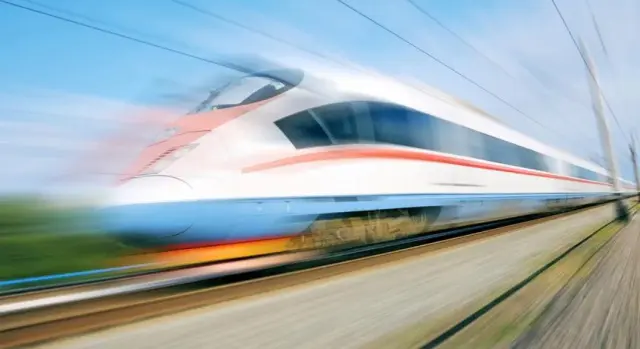
In a recent interview with Nova TV, Georgi Gvozdeikov, the acting Minister of Transport, announced that the Sofia-Burgas high-speed train line is slated for completion by 2027.
This ambitious project aims to significantly enhance the speed and safety of the Bulgarian State Railways (BDZ), with trains expected to travel at speeds of up to 160 km/h, reducing travel time between the two cities to approximately three hours.
The 360 km route between Sofia and Burgas is part of a broader initiative to modernize Bulgaria’s rail infrastructure, reflecting a joint commitment by the Ministry of Transport and various municipalities to improve the national transport scheme.
“We are working diligently to advance projects aimed at enhancing speed and safety within Bulgarian State Railways,” Gvozdeikov stated, highlighting the collaborative efforts involved.
A crucial aspect of this modernization effort is the recent contract signed with a Swiss company for the procurement of eight double-decker trains. These new trains will enhance the capacity and efficiency of the railway service. Furthermore, there is potential for the acquisition of an additional three double-decker trains, pending the availability of financing.
In addition to the double-decker trains, the Ministry of Transport has also concluded the bidding process for 35 single-decker trains.
This substantial investment in new rolling stock is expected to improve the overall quality of rail service in Bulgaria, providing passengers with a more comfortable and reliable travel experience.
The high-speed rail project is not the only initiative aimed at modernizing Bulgaria’s transportation infrastructure.
Plans are also underway to establish a widespread network of charging stations for electric vehicles (EVs).
This initiative, funded by approximately BGN 90 million under the “Transport Connectivity” program, is part of a broader strategy to promote sustainable transportation solutions.
The development of EV charging stations aligns with global trends towards greener, more sustainable transportation.
By supporting the adoption of electric vehicles, Bulgaria aims to reduce its carbon footprint and contribute to the global effort to combat climate change.
The establishment of this network is expected to make electric vehicles a more viable option for Bulgarian consumers, encouraging a shift away from traditional fossil fuel-powered cars.
The Ministry of Transport’s ambitious plans are expected to have a significant impact on Bulgaria’s economy and environment.
By improving the efficiency and reliability of the national railway system, the high-speed train line between Sofia and Burgas will facilitate easier and faster travel, potentially boosting tourism and commerce between the two cities.
The modernization of the rail system is also likely to create jobs and stimulate economic growth.
Moreover, the focus on sustainable transportation infrastructure, exemplified by the development of EV charging stations, underscores Bulgaria’s commitment to environmental stewardship.
By investing in green technologies, Bulgaria is positioning itself as a forward-thinking nation dedicated to sustainable development.
In conclusion, the completion of the Sofia-Burgas high-speed train line by 2027 represents a significant milestone in Bulgaria’s transportation modernization efforts.
Coupled with the introduction of new trains and the establishment of an EV charging network, these initiatives are set to transform the country’s transportation landscape, promoting economic growth and environmental sustainability.
The collaboration between the Ministry of Transport and local municipalities underscores a unified vision for a more efficient, safe, and sustainable future for Bulgarian transportation.
This article was created using automation technology and was thoroughly edited and fact-checked by one of our editorial staff members
